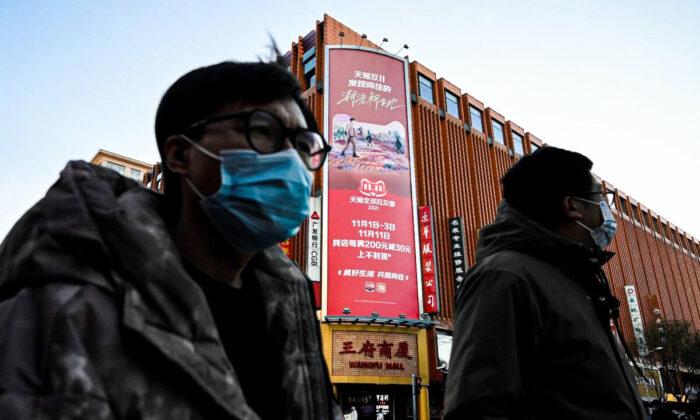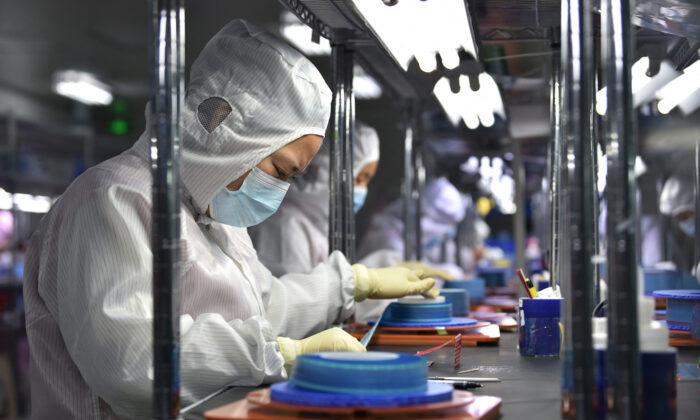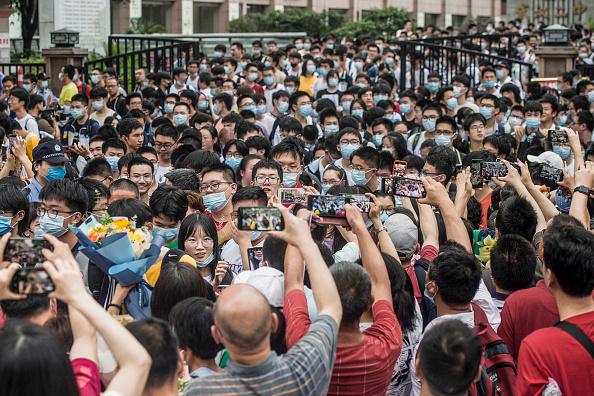Since last year a number of serious environmental pollution incidents have arisen in China. The serious water pollution of Lake Taihu and Lake Chaohu as well as the huge amount of contaminative floating on the Yangtze River are telling of the grave destruction that China’s survival base. However, the most ironic implication is that this series of environmental and ecological crises are not natural disasters but man-made calamities.
Take China’s top ten environmental pollution incidents in 2006 for instance. Among the man-made calamities were incidents of lead pollution in Hui County, Gansu Province, arsenic pollution in Yueyang City, Hunan Province, waste battery pollution in the East Sea, phosphorous pollution in Zunyi County, Guizhou Province, and diesel oil leakage in Luzhou City, Sichuan Province. While these incidents were man-made, others seem much more like Mother Nature fighting back against human beings. Lake Taihu is a perfect example. At one time, 10 percent of China’s gross domestic product and 16 percent of the national fiscal revenue were drawn from the economic miracle in the Lake Taihu basin. Local authorities were once very proud of these figures. Unfortunately, these authorities ignored a simple fact: this economic achievement was at the expense of the excessive use of the environment. How can the Lake Taihu basin withstand human’s predatory development with modern technology?
Lake Taihu’s ecological system has undergone unprecedented damage. Apart from the shrinkage of the Lake, water pollution, and the decrease of wetlands around the lake, blue-green algae have long been a big problem. Although the situation is not particularly serious this year, the algae have become permanent occupants of the Lake. According to a conservative official estimate, the annual loss resulting from Lake Taihu’s water pollution is around five billion Yuan (US$655 million). How can these problems be played down while claiming that economic development is more important than environmental protection?
The frequent emergence of cases of this kind of large-scale pollution reveals the serious crisis in the Chinese authority’s control over these matters.
The first indication of a crisis in control over these issues lies in the failure of the Chinese Communist Party (CCP)’s legal system. Over the past 20 years, the CCP has actually been quite active in drawing up environmental protection bills. Since it enacted the Environmental Protection Law in December 1989, other specific environmental protection laws have been issued one after another. Included among these are the Law on Prevention and Control of Water Pollution, the Law on the Prevention and Control of Atmospheric Pollution, the Law on Prevention and Control of Environmental Noise Pollution, the Law on Prevention and Control of Environmental Pollution by Solid Waste, and the Marine Environment Protection Law. The provisions of these laws seem feasible and the CCP has allowed media criticism on environmental protection issues. However, the reckless pollution caused by town and township enterprises in the 1980s have been replaced by medium and large state enterprises and foreign-invested enterprises with high pollution.
Failure of the assessment system is another problem. All of the CCP’s environmental protection laws stipulate that prior to the establishment of any pollution-prone enterprises, local authorities’ environmental protection departments should conduct professional assessments. In 2002, the National People’s Congress also passed the Law on Environmental Impact Assessment, but pollution licenses have continually been issued one after another. Many enterprises do not even take the most basic environmental protection measures to dispose of their pollutants and it is even a common trend to directly discharge waste water into the river. As a result, this pollution license system has led to serious contributions to the pollution in China’s rivers, lakes, sea and farmlands. The CCP’s environmental protection assessment system has actually been a complete failure. The reason is due to the fact that all the officials of the environmental protection departments are under the supervision of secretaries of the city Party committees and the heads of the city authorities. If local officials’ only concern is the growth of GDP, regarding it as their political credentials for promotion regardless of its impact on the environment, it’s simply inevitable for environmental protection departments to falsify environmental assessment reports as per their superiors’ wishes.
The third indication in a crisis of control is a failure in the enterprise external control system. According to relevant laws and regulations, all the local environmental protection departments are required to monitor pollution-prone enterprises at regular time and location. If pollution is found, the enterprises should be subject to penalties such as monetary fines or even closure of facilities. However, judging from the above-mentioned pollution cases, the local environmental protection agencies seem to be in state of dormancy.
In recent years there have also been many incidents people standing up environmental protection related rights. However, in each case, local authorities would always unexceptionally side with the enterprises, protecting the polluters’ interests. A typical example of this irony is the incident with Wu Lihong, the “Defender of the Lake Taihu.” Two months prior to the blue-green algae pollution incident, Wu Lihong, who launched a campaign to protect the ecology of the Lake Taihu, was arrested by the local authority. When looking at local authority’s hard stance on defending polluting enterprises and their way of regarding those who defend their rights against polluting enterprises as people engaged in anti-government acts, it’s easy get a glimpse of the inside story. In other words, the CCP’s way handling economics has made the authorities and enterprises a close common-interest Community.





Friends Read Free